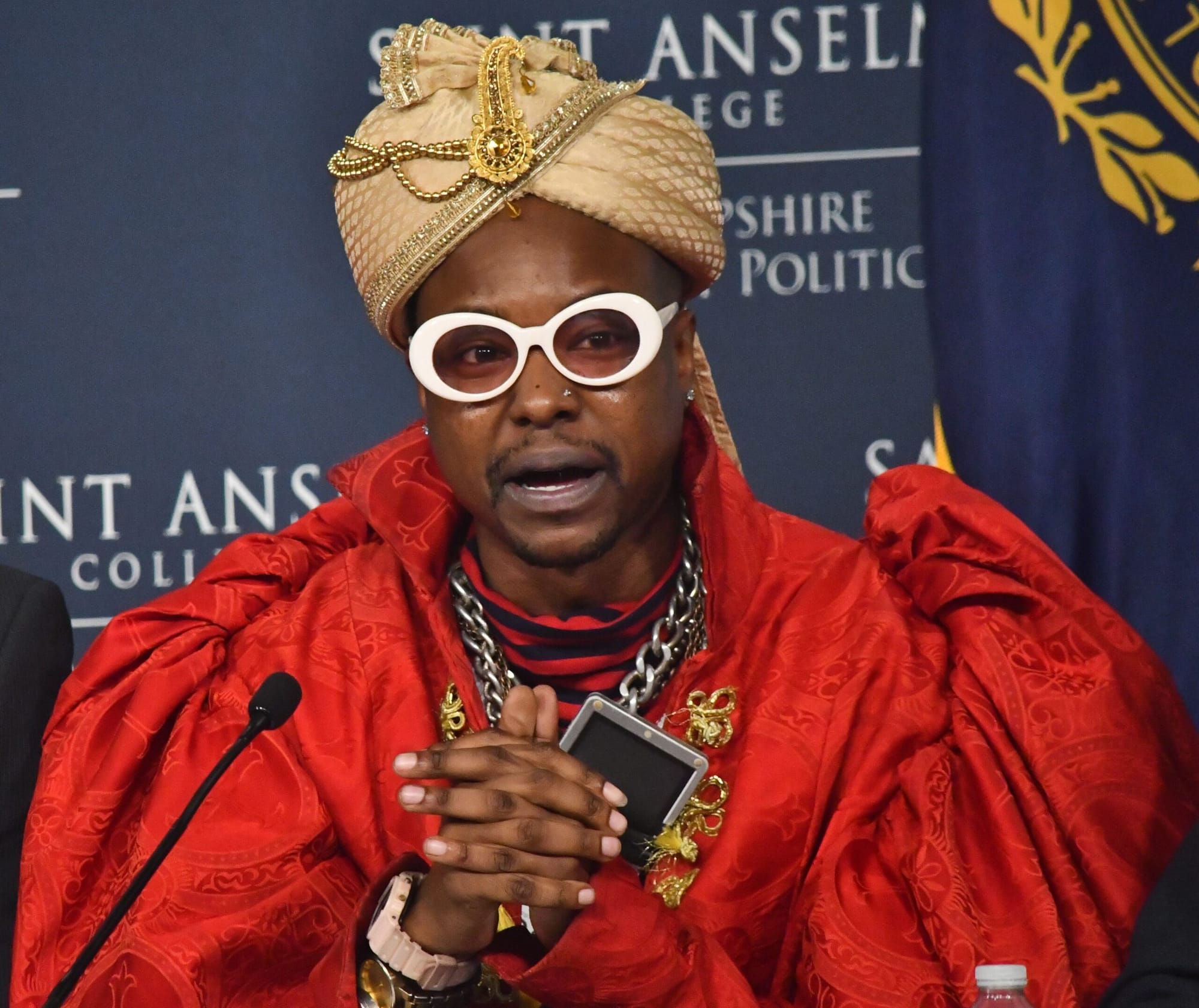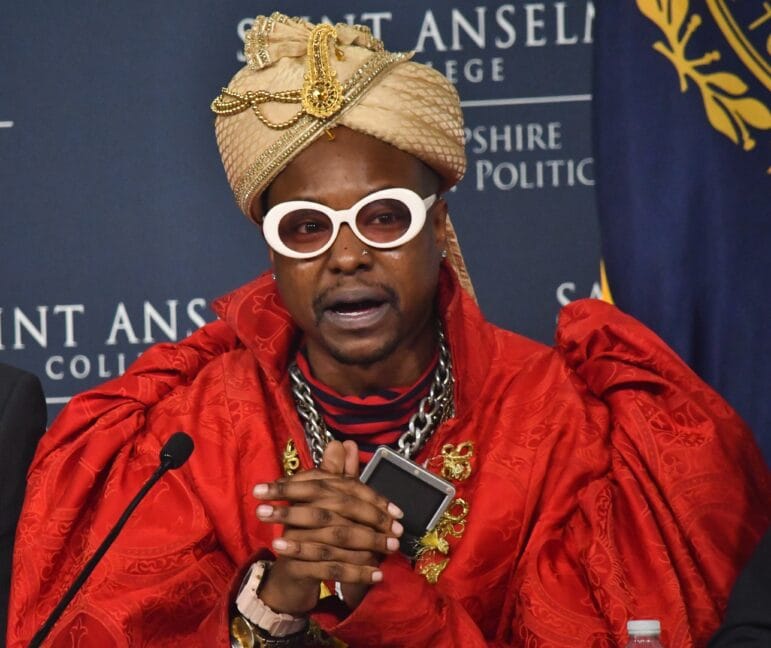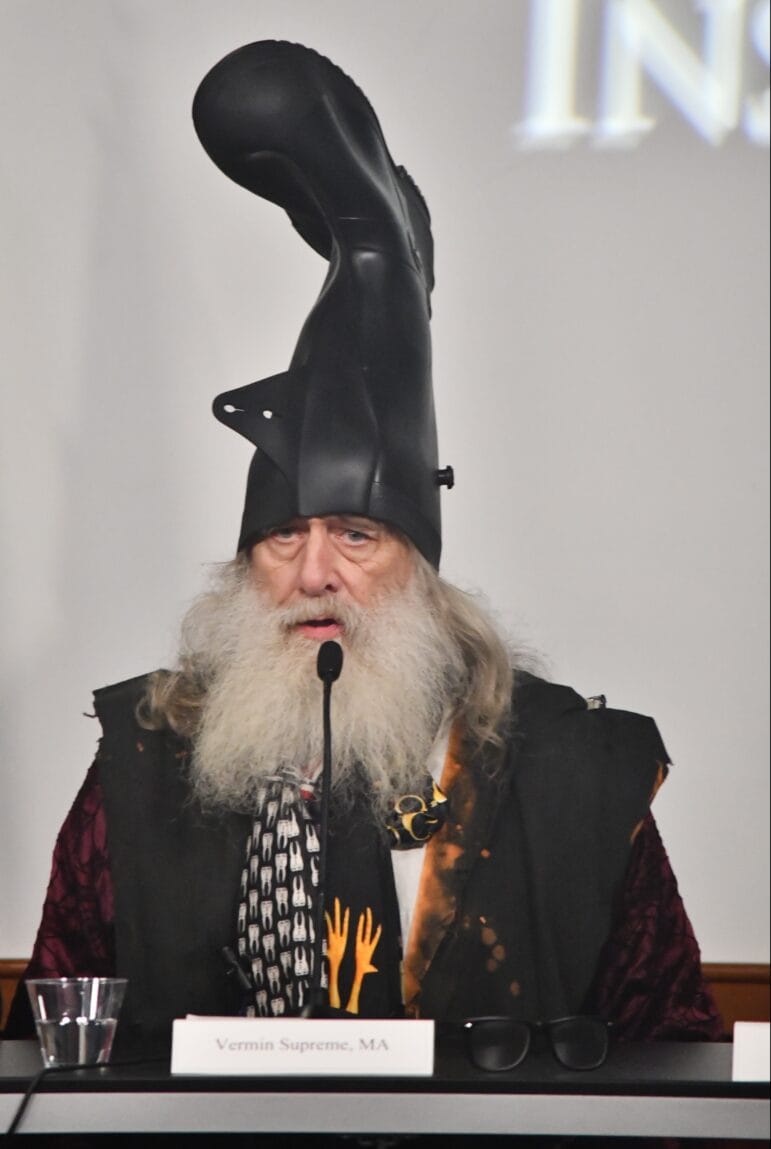Lesser-known candidates court First-in-the-Nation favor at NH Institute of Politics
In New Hampshire, anyone can get on the ballot to run for President if they’re constitutionally eligible and can pay $1,000. It takes a little bit more than that to get attention for a presidential campaign, but one tradition returned to help those candidates who may struggle to get recognition.


GOFFSTOWN, NH – In New Hampshire, anyone can get on the ballot to run for President if they’re constitutionally eligible and can pay $1,000. It takes a little bit more than that to get attention for a presidential campaign, but one tradition returned to help those candidates who may struggle to get recognition.
On Thursday, the New Hampshire Institute of Politics at Saint Anselm College welcomed 18 of the 45 candidates that will appear on Democratic and Republican Primary ballots this January for the Lesser-Known Candidates Forum.
Marking the 14th edition of the quadrennial debate of lesser-known presidential candidates, this time around, the event was split into one segment with 13 Democrats and another segment with five Republicans. President R. Boddie (Atlanta, GA), a recurring candidate who legally changed his first name to President, was expected to participate in the Democratic forum but did not appear. Mark Stewart-Greenstein (West Hartford, CT) was in attendance but did not participate in the Democratic forum due to logistical issues.
On both sides of the aisle, incumbent President Joe Biden was a recurring topic of discussion. While the Republican candidates’ views on Biden were uniformly negative as would be expected, there was also widespread disillusion about the Democratic side, excluding Raymond Michael Moroz (Colonie, NY).
Despite his own name being on the ballot, Moroz encouraged New Hampshire voters to write-in Biden on the stage for his efforts reaching out to labor unions, stating that the Democratic National Committee would once again recognize New Hampshire’s First in the Nation Primary within its calendar in 2028, but next year the focus must be on defeating the Republican candidate.
The frustration with Biden from the other candidates came in a variety of flavors. Richard Rist (Baltimore, MD) felt that Biden was only interested in campaigning in areas that were safe for him. Jason Michael Palmer (Baltimore, MD) felt that Biden lacked a positive vision, Terrisa Bukovinac (Washington, D.C.) felt that Biden ignored the will of Pro-Life Democratic voters. Frankie Lozada (Valley Stream, NY) expressed frustration with state Democratic Parties denying access to him and other candidates to confirm Biden without a primary. Donald Picard (Cambridge, MA) felt that Biden’s fear of competition may become a self-fulfilling prophecy and that he was running to provide voters a choice that Biden could not provide to ensure they would be motivated in the general election. And several of the Democratic candidates just flat out said that Biden is a poor candidate in general.
“If you are afraid of competition from lesser-known candidates, how will you do against Trump,” said Gabriel Cornejo (Las Vegas, NV) about Biden’s absence from the New Hampshire Primary Ballot.

Beyond Biden, the two segments provided a wide array of ideas, spurred in part from questions from Kevin Landrigan of the New Hampshire Union Leader and Holly Ramer of the Associated Press.
On the Republican side, Glenn McPeters (Essex Junction, VT) said that instead of monetary unemployment benefits, unemployed people should be given a job, daycare and transportation to a job. Other Republican ideas included Mary Maxwell (Concord, NH) wondering if maybe there should be more than one president, Scott Merrill (Norwalk, CT) hoping to make one college in each state “pro-life” and Peter Jeddick (Rocky River, OH) believing that the nation’s capitol should potentially be moved.
Some of the Democratic ideas included Lozada’s belief that every part of a gun should be registered with data on a blockchain, Paperboy Love Prince (Brooklyn,NY) said that a million people each year should be given a million dollars each for acts of kindness they give to their community and the one-and-only Vermin Supreme (Rockport, MA) stating that the government should take everyone’s guns and then give them back better guns with lethal marshmallow ammunition.
Regardless of how the candidates fare next month, New Hampshire Secretary of State David Scanlan praised the event as an example of New Hampshire may be the last state where anyone constitutionally qualified to become President of the United States can chase that dream, unlike states such as Florida where state parties can take that decision out of voters’ hands.
“This state does not require high name recognition, great wealth or political connections, simply a willingness to walk down any Main Street in New Hampshire and have the ability to connect with voters. The candidates here today are a testament to that,” said Scanlan. “In the end, the voters of New Hampshire will decide their choice for President of the United States. And that’s how it should be.”





